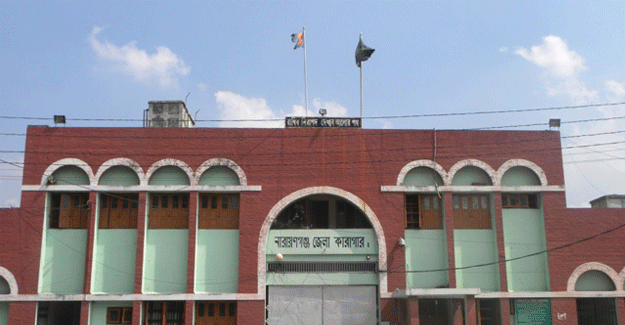
Bangladesh Sets Up Garment Factory Infra in Jail To Rehabilitate Inmates
The Bangladesh government has hit upon a novel way to make prisoners contribute to the export basket of the country’s garment industry. Starting today, they have commenced in a move which is described as the first-ever, a mini-garment factory for jail inmates.
The factory will be inaugurated in the Narayanganj district jail. The inauguration of the novel initiative was at the hands of the home minister of Bangladesh, Asaduzzaman Khan Kamal. This mini-garment factory which will operate from the precincts of the district jail will enable the jail inmates to acquire a useful income by being employed as a workforce while still serving their jail term. This also gives them the opportunity to learn life skills.
The government initiative was amply backed by the Bangladesh Knitwear Manufacturers and Exporters Association (BKMEA). A group of manufacturers numbering nearly 400 came together and organized training for the prisoners to enable them to work productively in the mini-garment factory. The jail inmates will work in the factory in two shifts. The detailed plan and operations was disclosed by the Jail superintendent of Narayanganj, Subhas Kumar Ghosh.
Giving details on the logistics and operations, Ghosh said, “Whatever the prisoners manage to earn by opting to be part of the trained workforce will be directly credited to their bank account. They have flexible options too. They can either remit the money to their families or alternately cash in or withdraw the entire amount at the end of their jail term.”
The first-of-its-kind initiative was brought into effect by the coordination between the district administration and department of social services. They built the factory on an area that spawned 5,000 square feet. Subsequently, they imported machines from abroad that numbered 57 in all. The machines included those used in sewing and embroidery. Right now all these machines have been installed in the mini-garment factory.
Talking of future plans, the jail spokesperson said, “We contemplate importing fabrics for purpose of garment production from abroad. Under the scheme we have chalked out, handicrafts too will find a place. In addition, we have taken other initiatives too for creation of income for the jail inmates so that they can be appropriately rehabilitated.”
The current set of initiatives has ushered in place six looms. The looms have been installed inside the jail. In all, 12 prisoners are working on this facility to produce Jamdani fabrics while 25 others are engaged in producing bed sheets.
Textile Excellence
If you wish to Subscribe to Textile Excellence Print Edition, kindly fill in the below form and we shall get back to you with details.












